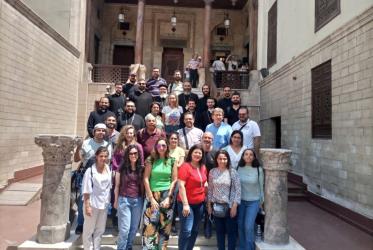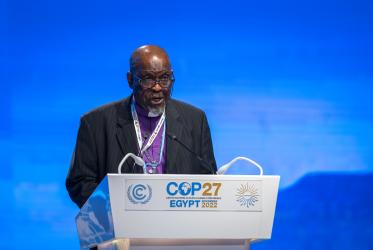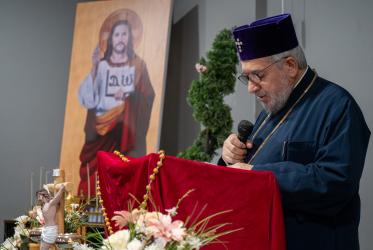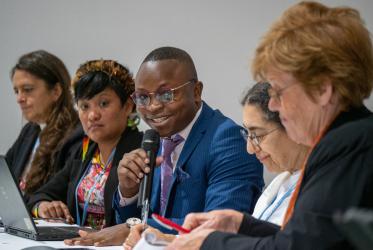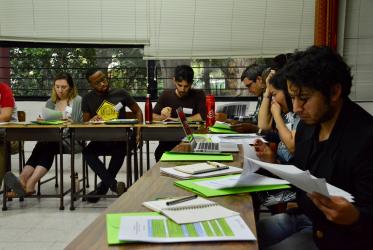Displaying 1 - 20 of 58
COP side event explores how to deliver on the promise of adaptation
16 November 2022
New WCC “Eco Ambassadors” pledge to protect our ecology
06 January 2020
Eco-School promotes blue communities, green churches
19 November 2019
WCC Eco-School begins in Thailand
07 November 2019
Interfaith Rainforest Initiative expands
12 February 2019
WCC Eco-School encourages youth to become eco-ambassadors
08 November 2018
